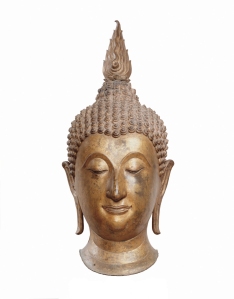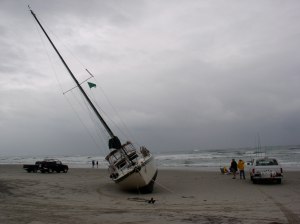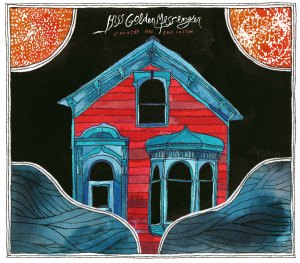Hiss Country Hai.
This one’s going out by request to my homie Mike… It was a pleasure to tool through his tunes on the occasion of Hiss Golden Messenger’s upcoming long-player, “Country Hai East Cotton.”
*****
I was that kid on the Georgia line
Jai Lil Diamond did hard time on the farm, and it was blood in the creek how they caught him.
I come from Lexington
Or, Jai Lil Diamond used to tear-ass around the county in a pristine ’57 Chevy Bel-Air lowrider, blasting a Billy Stewart tape and shooting out mailboxes with his juvember.
It’s called Paradise, and I think I’ve seen it once or twice
Or, Jai Lil Diamond dug a hole in the red clay and buried the band’s instruments in a charred canoe down there what belonged to his Uncle Irv, and collards sprouted up thick as you ever seen them sprout.
If we want to stay alive, we better row
I saw Jai Lil Diamond sing a besotted Gary Stewart plaint — it was “Drinkin’ Thing,” not that it matters particularly, and he killed it — in front of a five-hundred-year-old Ayutthaya head of Buddha, a grape-faced bronze androgyne that watched with blissed-out eyes, listened with elongated ears, and perhaps even contemplated Gary’s dipsomaniacal suffering beneath what resembled a ribbed Esther Williams swim cap ablaze with a perfect solitary gilt flame. Some have hearts of gold, and some have hearts of bronze. Jai had a new winter beard on and wore blue jeans. I won’t bullshit you, their aspects didn’t quite jibe then and there, but these two Golden Messengers both held in that moment a jewelled guess at the horror and hilarity of passing hours. As if counting the miles from home, Thailand or California or where-have-you. This was North Carolina, Sunday, not that it matters particularly.
Afterwards Jai Lil Diamond told me a thing. He took a slug, slid his mug of brew back across the bar and told me what it was to be nigh a daddy. She would have me be a ring of bone. I didn’t know it at the time — and he didn’t know it at the time — but when the Diamonds moved South to Eaglewing Farm, they would soon be joined by a young’un. New life, and new ears, waiting to get born! We got woods between us, a handful of acres separate the Farm from our Lodge, and out of those woods hums a dream of barred owls, stunned deer, and swift bats. As with most things, the youngest among us hear the hum clearest and closest. That’s the sound Jai and Hiss crew harnessed from afar, in anticipation of a return to a new original homeplace, early soil and heavy carpet of fallen leaves and the tenderest carnitas. They stole those sylvan scenes, especially the autumnal echoes of quiet rot, conjured them from three thousand or so miles out West, and set them down with incanted urgency on three thousand feet or so of magnetic tape. Most takes were first takes. Instant light.
I guess it’s like when you go to a place and carry some dirt from there and transplant the translated dirt in your own garden. If the music herein sounds more burnished than that, then know that this is the sound of grown folks considering the proper proportions of moving around and staying still, of grown folks saying their goodbyes, gently. If John has gone to the light, and Isobel‘s face in the eponymous film brings some dim light to the past, if I don’t want to talk about my baby, and I always thought you were my friend, and Oh Nathaniel, then maybe time might not exact an unanswered revenge. Not so much ruefully counting our losses as piling on more and more blankets when the mercury drops (it always drops, even here in the Old North State.) There is, if you listen carefully, a dire hint of the inexorable nestled down in the swelling strings and the steel and loping bass and brass, a bramble among the roses. Watch out for the cannonball. In 1733, on their brutal march into Germany, the Russian infantry was so overwhelmed by nostalgia that military doctors and officers were forced to enforce a terrible, but highly effective cure for this unmanning brain inflammation: burying the afflicted, the nostalgic, alive. The record you hold in your hands voices a different strain of nostalgia, but one no less potent. The cure’s just different, is all. Resurrection blues, why don’t you let me die?
“Country Hai East Cotton” means “OK this is where we’re living now, and this growth has choked and clothed our brothers and sisters for hundreds, and now let’s all together raise a glass and raise our voices against the wind.” In North Carolina, we grow our cotton in the coastal plains of the East, on the swamp; we chew it up and process it in the rapidly emptying Piedmont textile mills — they called the workers “lintheads” once, derogatively, those same blessed hardscrabble souls who invented bluegrass — and we wear layers of it in the Blue Ridge Mountains of the West, where winters are coldest, ballads the oldest, and voices the high-lonesomest. But none of that matters particularly. Place is just a passing whisper in our contemporary world of whirring wires. On my way to getting wasted. Here on this recorded document of a brief era we have sturdy bridges between cracklins boogie, cinematic flatland sprawl, and a few fine-tuned international engines (Jamaican certainly, and German, probably.) But what Hiss Golden Messenger pushes is the subversive idea that as much as we might cruise around, chorus to chorus, on the steam of our gathered myths and models — records, stories, recipes, pictures, poems, apocrypha — you’ve ultimately got to choose a place to settle a while and soak in your surroundings. And that matters. That is our gauge. That is our reckoning.
The moon is nothing but an old stone.
Marpessa Dawn
Womble Lodge
January 2008




